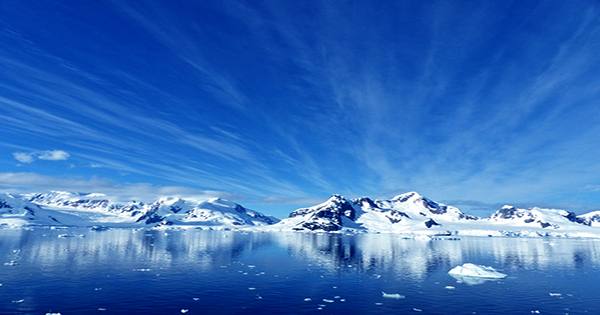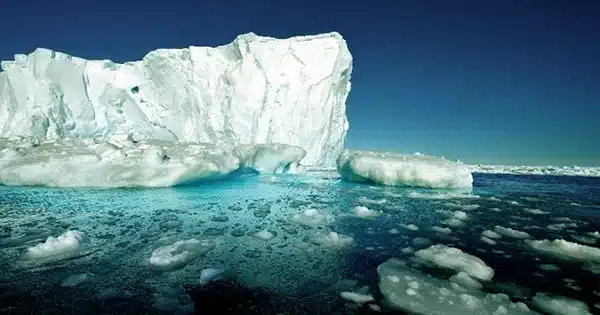East Antarctica’s glaciers may lose ice faster than previously believed in the future, according to experts, in a worrisome feedback loop in which glacier meltwater causes even more ice loss and sea level rise as the earth warms.
The discoveries come less than a week after scientists announced that due to human-caused global warming, fast loss of West Antarctica’s ice shelves may now be unavoidable. These and other recent research, taken together, offer a bleak image of a melting southern continent that poses a severe risk of life-altering sea level rise around the planet.
“This paper shows that it’s not only bad, but it’s even worse than we thought,” said Jamin Greenbaum, co-author of the study and assistant research geophysicist at the Scripps Institution of Oceanography at the University of California, San Diego.

The study, published in the journal Science Advances on Friday, focuses on the Denman and Scott glaciers in East Antarctica, which together hold enough ice to cause a five-foot rise in sea level.
Previous research has demonstrated that as glaciers melt, water flows beneath them and out to sea, accelerating glacial melting and ice loss. The study published on Friday incorporated the feedback into models to determine how much it could hasten Antarctic melting and sea level rise.
Scientists discovered that if the world uses planet-warming fossil fuels at a faster rate, glaciers might recede below a key threshold around 25 years sooner than they would have without the meltwater flow.
Under this scenario of high levels of planet-heating pollution, adding meltwater feedback boosted sea level rise from the Denman and Scott glaciers by about 16% by the end of 2300.
Greenbaum pointed out that increased ice loss from meltwater discharge is currently removed from climate models projecting sea level rise, despite the fact that it might be a key driver of ice loss across the entire continent. Measuring and accounting for this phenomenon in climate models is required “to get a realistic picture of global sea level rise,” according to Greenbaum.
Tyler Pelle, the study’s lead author, and a Scripps postdoctoral researcher, says people should pay attention to this portion of the planet as East Antarctica becomes more unstable, providing a higher danger of sea level rise for coastal towns and low-lying island nations.
“These are huge ice masses that we previously thought were stable, and now we have all of this evidence from coastal observations showing that these glaciers have been in patterns of retreat for quite a long time now,” Pelle told CNN in an interview. “That makes it very worth the attention.”
According to researchers, people’s lives are at stake.
While people alive today may not be affected by the severe effects of this melting, Pelle believes that decisions taken today will determine the fate of future generations.
“What we emit now is going to be impacting climate for generations to come,” Pelle told the audience. “What we do today does have an impact on what the Earth is going to look like in 2100 or 2300, even if we’re not on this Earth anymore.”
Jan De Rydt, an associate professor of polar glaciology and oceanography at Northumbria University who was not involved in the study, said the researchers present “a strong argument” for why subglacial discharge must be accounted for in all predictions of Antarctic ice loss.
“Given this evidence, subglacial melt and discharge is a process that can no longer be ignored in future projections of Antarctica’s contribution to sea level rise,” De Rydt told CNN at the time.
While the researchers only employed a present-day simulation for the study, which resulted in conservative conclusions, Greenbaum stated that they intend to return to the field to evaluate the depths of the ice sheet and the ocean in order to properly comprehend what the future holds.
“The least-explored part of Antarctica is the most important to observing and monitoring,” he went on to say. “That’s a huge problem, that’s like yell it from rooftops, and it’s something that our group is really focused on.”















